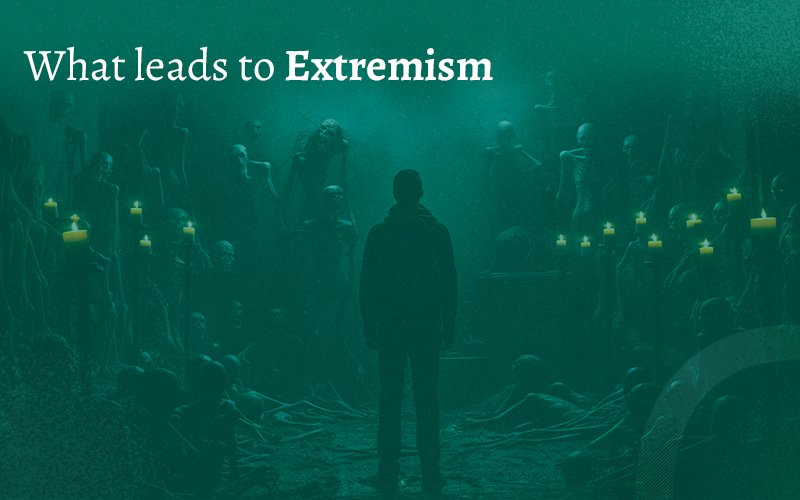In today’s world, extremism has become a pressing issue affecting communities worldwide. But what precisely drives folks down the road of extremism? Let us delve into this intricate phenomenon and shed light on its sources and effects.
Root Causes of Extremism
At its core, extremism regularly arises from a sense of disenchantment or marginalization. When people feel excluded or oppressed by society, they may seek solace in radical ideologies that promise them a sense of belonging and intention. This sensation of alienation can surface from various elements, like socioeconomic inequality, cultural discrimination, governmental turmoil or political instability.
Furthermore, extremist groups shrewdly appeal to precarious individuals by granting them a feeling of identity and fellowship. Whether through online forums communicating radicalized perspectives or influential leaders with charismatic tongues, these assemblies prey on persons seeking significance in their experiences.
An additional contributing element to fanaticism is the proliferation of misinformation and propaganda. In today’s digital timeframe, false narratives can circulate like wildfire, stoking detestation and intolerance. Virtual social platforms, specifically, have transformed into hotbeds for radical ideologies, where resonating chambers reinforce extreme convictions and seclude individuals from opposing viewpoints.
Indeed, psychological aspects play a significant part in pushing individuals towards extremism. For some, the simplistic black-and-white worldview espoused by radical philosophies provides facile explanations for complex social issues. Moreover, emotions like anger, fright, or resentment can render individuals more susceptible to radicalization as they seek avenues to channel their sentiments into action.
Consequences of Extremism
Once people become enmeshed in extremist ideologies, the impacts can be devastating, affecting both themselves and society at large. Extremism regularly leads to brutality, as devotees may resort to terrorism or hate offenses to further their agendas. Such brutality not only causes harm to innocent victims but also perpetuates a cycle of dread and retaliation. Additionally, those who feel most disenfranchised or disconnected from the mainstream often gravitate towards the sense of belonging that extremist groups can offer. While extremist ideas may speak to internal psychological or emotional needs, in practice, they rarely address the complex societal problems that helped drive individuals towards radical philosophies in the first place.
Furthermore, extremism breeds division and polarization within communities as trust erodes and suspicion festers. This can have far-reaching consequences, undermining social cohesion and hindering efforts towards peace and reconciliation. In extreme cases, it can even lead to civil unrest or conflict, tearing apart the fabric of society. Extremist rhetoric often exploits resentment and stokes the flames of intolerance, turning neighbor against neighbor and making compromise seem impossible.
Addressing Extremism
Addressing extremism requires a multifaceted approach that tackles its root causes while also addressing its symptoms. Firstly, it’s crucial to address the underlying grievances that drive individuals towards extremism. This may involve addressing issues of inequality, discrimination, and political instability through inclusive policies and social programs. We must also promote pluralism and condemn the dehumanization of others so that all people can peacefully coexist regardless of race, religion, or beliefs. The conditions that allow extremism to spread can begin to shrink by assuaging anxieties and fostering understanding between groups.
While combatting extremist propaganda necessitates a coordinated initiative to advance learning and judicious reflection, supplying persons with the techniques to segregate actuality from untruth and motivating unblocked interchanges, we can render society impervious to disseminating radical ideologies. Moreover, tackling extremism demands teamwork among governing bodies, civic groupings, and the communities themselves. By cooperatively striving to curb hate speech, monitor online radicalization, and furnish aid to susceptible persons, we are able to constitute a more durable society that rejects extremism in all its forms.
Conclusion
While extremism arises from a confluence of societal, psychological, and ideological drivers, promoting inclusion and peace demands comprehending its roots and repercussions. By appreciating what catalyzes radicalization, we can forge ties uniting diverse views and ensure a brighter horizon embracing all. Though extremism begets complex tests, together through goodwill and cooperation, we can rise above divisions, shape solutions, and bequeath coming eras a world accepting of differences. Our shared future depends on collective effort nurturing fellowship over fear: may fellowship light our way.
